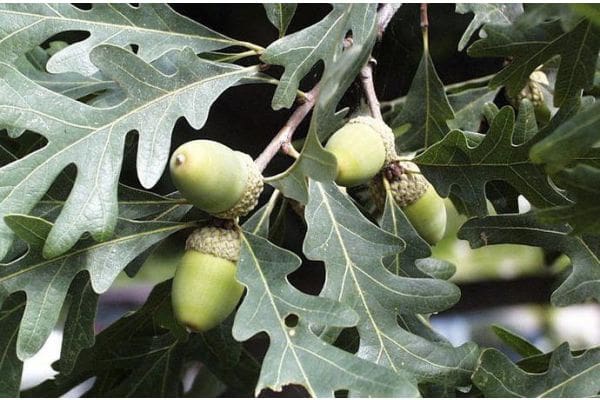Chestnut Hill Outdoors Oaks Offer Opportunities for Hard Mast Orchards

There’s no question that oaks are among the most popular trees for planting hard mast orchards, and Chestnut Hill Outdoors offers an array of options for almost any climate zone or site condition.
One of the most important considerations is whether a particular species is adequately suited to the local climate. Chestnut Hill Outdoors lists USDA Plant Hardiness Zones for each product to ensure proper selection. They check every order to ensure the selected species are appropriate for their destination. Soil and sunlight conditions can vary, even within a particular location. That’s why Chestnut Hill Outdoors also provides recommendations on sunlight requirements and soil pH. They also offer enough variety that by planting different species, mast orchards can provide hard mast over a longer period.
The top choices for northern zones would be Nuttall and Swamp white oak, which are cold hardy to USDA plant zones 4-8 and drop nuts in October and November. For southern zones, the swamp hhite does best in moist upland soils, while the Nuttall tolerates wet soil and moderate drought. White oaks are rated as slightly less cold tolerant and similarly suited to rich upland soils. Next is a suite of trees rated to zone 5 but may tolerate slightly cooler zones if planted in direct sunlight on south-facing slopes. Shumard oaks are drought tolerant, fast-growing, and produce giant acorns. The Overcup oak can thrive in partial or full sun, enjoys acidic soil, and can withstand poorly drained areas, making it an excellent choice for variable site conditions. Sawtooth oak is favored for its rapid growth and prolific mast, producing acorns in 4-6 years and up to 100 lbs. per tree at maturity. Last but not least is the Pin oak, which does well where water stands for weeks at a time, making it an excellent choice for sandy to clay loam soils in bottomlands, stream banks and floodplains.
Most oaks require pollinators. Chestnut Hill Outdoors recommends planting at least two trees for pollination. However, each additional tree will increase pollination for better mast production. As noted, growing a variety of species also widens the window of wildlife attraction as some species drop early while others produce later in the fall.
Chestnut Hill is the best place for you to purchase your food plot and deer attractant plants because they offer a large selection, their plants are specifically bred to attract deer, and they offer customers different-sized plants at different levels of growth. In order to ensure you receive the maximum benefit from their products, they also provide sound advice and instruction on proper planting and care. For more on Chestnut Hill Outdoors products and how to care for them, visit ChestnutHillOutdoors.com, or call (855) 386-7826.
For more information, please visit
WWW.CHESTNUTHILLOUTDOORS.COM


